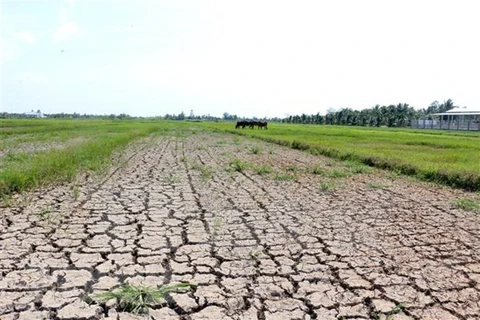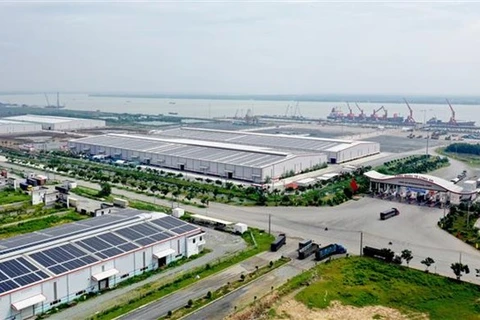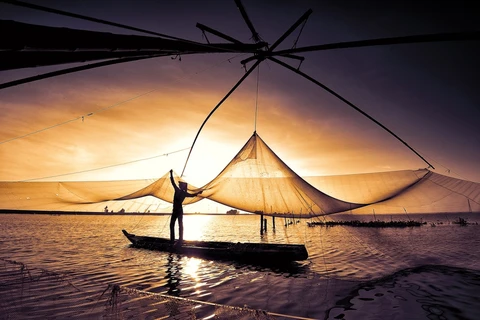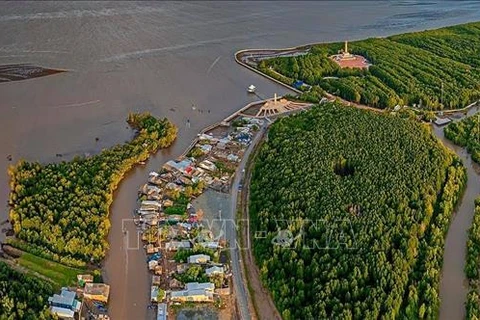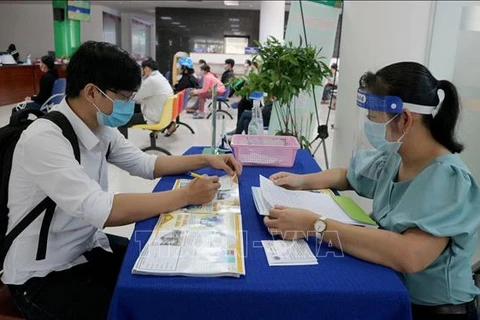Hanoi (VNA) - The annual Forum on Cooperation and Sustainable Development in the Mekong Delta (Mekong Delta Forum) was held in both in-person and online forms on November 4, under the theme “Promoting local initiatives - Strengthening multilateral cooperation”.
The forum was jointly held by the Vietnam Union of Science and Technology Associations (VUSTA), the European Union Delegation to Vietnam and the Green Innovation Development Centre (GreenID) in Hanoi, and connected to Ho Chi Minh City and 13 Mekong Delta localities.
Speakers at the forum are leading domestic and foreign scientists and experts working in the fields related to sustainable development of the region.
The forum included three sessions, with the first focusing on planning orientations, the second introducing selected energy initiatives and proposals on climate change adaptation, and the final being a roundtable seeking measures to intensify multilateral cooperation and calling for initiative for the 2022 forum.
Ambassador Giorgio Aliberti, head of the European Union Delegation to Vietnam, said that the Mekong Delta region is facing enormous challenges such as land subsidence, coastal erosion, sea level rise, saline intrusion, loss of mangroves, and problems related to water, riverbed sand and groundwater quality management. The region’s economy and people's livelihoods have also been hit hard by the COVID-19 pandemic. This requires a strong collective action by all stakeholders for more sustainable recovery, he added.
Professor, Dr. Marco Abbiati, Scientific Attaché, Counsellor of the Italian Embassy in Vietnam, said that policies, including those on regional planning and economic promotion models, need to be suitable and close to the reality.
The proposed solutions must be comprehensive and friendly to the nature, with long-term sustainability and long-term resources of localities taken into account, he stated./.
The forum was jointly held by the Vietnam Union of Science and Technology Associations (VUSTA), the European Union Delegation to Vietnam and the Green Innovation Development Centre (GreenID) in Hanoi, and connected to Ho Chi Minh City and 13 Mekong Delta localities.
Speakers at the forum are leading domestic and foreign scientists and experts working in the fields related to sustainable development of the region.
The forum included three sessions, with the first focusing on planning orientations, the second introducing selected energy initiatives and proposals on climate change adaptation, and the final being a roundtable seeking measures to intensify multilateral cooperation and calling for initiative for the 2022 forum.
Ambassador Giorgio Aliberti, head of the European Union Delegation to Vietnam, said that the Mekong Delta region is facing enormous challenges such as land subsidence, coastal erosion, sea level rise, saline intrusion, loss of mangroves, and problems related to water, riverbed sand and groundwater quality management. The region’s economy and people's livelihoods have also been hit hard by the COVID-19 pandemic. This requires a strong collective action by all stakeholders for more sustainable recovery, he added.
Professor, Dr. Marco Abbiati, Scientific Attaché, Counsellor of the Italian Embassy in Vietnam, said that policies, including those on regional planning and economic promotion models, need to be suitable and close to the reality.
The proposed solutions must be comprehensive and friendly to the nature, with long-term sustainability and long-term resources of localities taken into account, he stated./.
VNA

